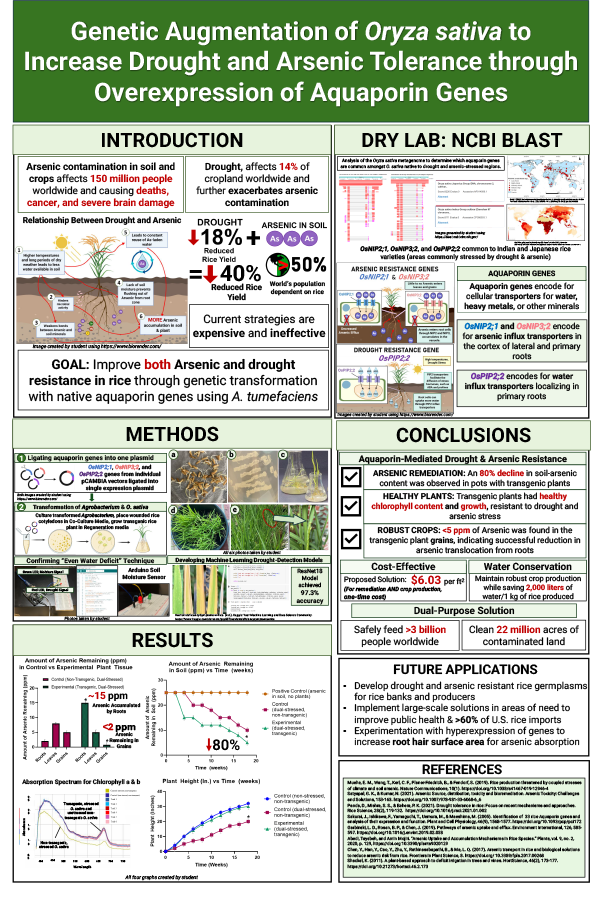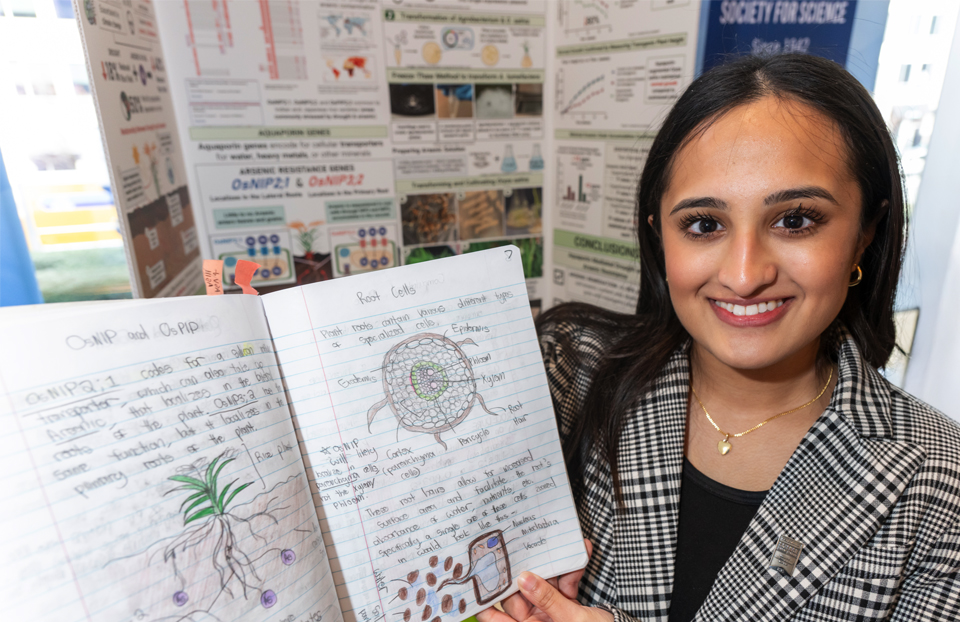Prisha Prakash Bhat
Plano East Senior High School
Plano, Texas
Developing Robust Rice Crops That Withstand Combined Drought and Arsenic Stress
Prisha modified rice plants to boost three proteins that help resist drought and arsenic. Arsenic from factories ends up in the soil and the plants we eat, making people sick.
View Poster
Prisha Prakash Bhat, 17, of Richardson, Texas, analyzed how increasing gene activity affected drought and arsenic resistance in rice for her Regeneron Science Talent Search plant sciences project. Rice is a staple crop worldwide but may contain arsenic from polluted soil. It is susceptible to drought, which can reduce crop yield and may raise arsenic levels.
While visiting her sick grandmother in India, Prisha learned the cause of her illness — arsenic poisoning from rice. Once home, Prisha flew into action, spending years studying ways to reduce arsenic levels in rice. She modified rice plants to boost three genes: drought-resistance OsPIP2;2 and arsenic-resistance OsNIP2;1 and OsNIP3;2. Testing showed that her modified plants trapped arsenic in their roots, reducing levels in the soil and rice grains. She sees this as a sustainable way to make rice more resistant to drought and arsenic, improving health and possibly crop yield.

Prisha, the child of Prakash and Shubha Bhat, attends Plano East Senior High School, where she is president of the Learning About Science and Engineering Research club. She is also captain and mentor on the debate and speech team. In 2024, Prisha was one of 100 Coolidge Senators who attended a summit on policy and business.

Beyond the Project
Passionate about helping those at risk from toxins, Prisha volunteers at the North Texas Poison Center. She also created a local art exhibit to improve awareness of common toxins.
FUN FACTS: Prisha likes to set things on fire, according to her mother. But Prisha sees her welding work as creating “something out of nothing” and lets her creativity shine through.

